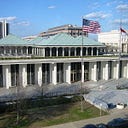Statement from Sen. Berger on Judge Osteen’s Order
Judge blocks N.C. Board of Elections from eliminating witness requirement after the Board’s secret settlement with Dem super-lawyer
Raleigh, N.C. — Federal Judge William Osteen today blocked the N.C. State Board of Elections’ attempt to eliminate the absentee ballot witness requirement.
On most other components of the Board’s secretive settlement with the Attorney General Josh Stein and Democratic Party super-lawyer Marc Elias, Judge Osteen concluded that the Board of Elections violated the U.S. Constitution and North Carolina law by rewriting election statutes after ballots had already been cast. However, Judge Osteen determined that he did not have the power to block the entire secretive settlement, even though the settlement has not yet been fully implemented.
Judge Osteen sharply criticized Gov. Cooper’s Board of Elections throughout his decision. In one excerpt, Judge Osteen wrote, “In all candor, this court cannot conceive of a more problematic conflict with the provisions [the law] than the procedures implemented by the [Board of Elections’] Revised 2020–19 memo and the Consent Order. Through this abandonment of the witness requirement, some class of voters will be permitted to submit ballots with no verification. Though SBE suggests that its ‘cure’ is sufficient to protect against voter fraud, the cure provided has few safeguards: it asks only if the voter ‘voted’ with no explanation of the manner in which that vote was exercised.”
Senate Leader Phil Berger (R-Rockingham) said, “Judge Osteen concluded in no uncertain terms that the N.C. State Board of Elections violated the U.S. Constitution and North Carolina law by changing election laws after ballots had already been cast. Judge Osteen was right to stop the Board’s elimination of the absentee ballot witness requirement. We disagree with his determination that he lacks the power to block some of the other tenets of the Board’s illegal settlement. This all started because of the Board’s 11th-hour decision to rewrite election laws after ballots had already been cast.”
Sen. Berger continued, “Two federal judges have now ruled that the Board of Elections violated the Equal Protection Clause by changing election laws after voting started. Unelected bureaucrats cannot change voting laws in the middle of the election, and we intend to press those claims to the U.S. Supreme Court if necessary.”
How Did We Get Here?
Earlier this year, bipartisan supermajorities in the legislature changed election laws to make it easier to vote during the pandemic, thus setting the rules of the election well before voting started. The Board of Elections issued a memorandum on Aug. 21 to county officials outlining the rules of the election, including the procedure to follow when an absentee ballot is missing the required witness information. So far, so good.
But last month, the N.C. Board of Elections, which is controlled by Democrats, and Attorney General Josh Stein, a Democrat, secretly negotiated with Democratic Party super-lawyer Marc Elias (who formerly represented Democratic Gov. Cooper) to “settle” a lawsuit after voting already started. The parties excluded Republican legislative leaders during their secret talks even though the legislators are co-defendants in the lawsuit.
On Sept. 22, Gov. Cooper’s Board of Elections unveiled the result of their secret negotiations: a “settlement” that effectively eliminated the absentee ballot witness requirement, tripled the time period after Election Day in which ballots may be received, and permitted ballots found in anonymous drop boxes to be counted.
Attorney General Stein refuses to comply with mandatory public records requests seeking communications surrounding the secretive settlement talks.
In the settlement agreement, Gov. Cooper’s Board of Elections changed its Aug. 21 memorandum and issued new rules that violate state law.
When the secretive settlement deal drew national attention, Attorney General Stein and the Board of Elections tried to claim that the terms of the deal were actually required to comply with a previous federal ruling from Judge Osteen.
When Judge Osteen learned of this, he strongly rebuked the Attorney General and Board of Elections, writing, “This court finds such an interpretation unacceptable.”
Judge Osteen’s ruling today follows a temporary restraining order put in place by a different federal judge, Judge James Dever, earlier this month. In his ruling, Judge Dever wrote, “At bottom, the [Board of Elections] has ignored the statutory scheme and arbitrarily created multiple, disparate regimes under which North Carolina voters cast absentee ballots.”
